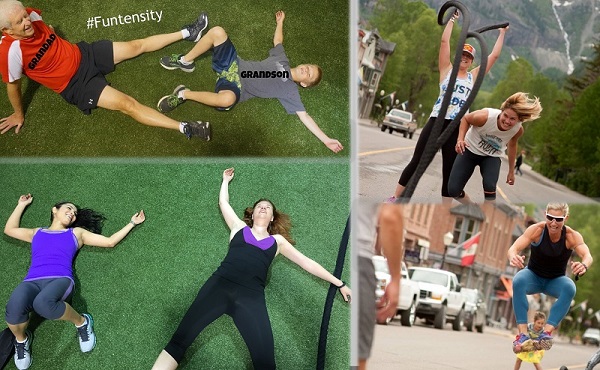I recently watched a TED talk with some great information from a neuroscientist explaining the wonderful brain benefits of exercise, echoing and enhancing much of what has been a part of the Funtensity program since the start. All good information and a great talk overall.
There’s just one slight problem near the end.
And it’s the same one that keeps coming up repeatedly.
It happens any time someone shares information on how great exercise is for your body, brain, mood, sex life, sleep quality, tooth whiteness, posture, or anything else.
It’s some version of the following:
“Now that you know how amazing exercise is for __________, you really should do it!”
Big Smile.
Endless Problem with Exercise
This is a seemingly never-ending pattern. If we were strictly rational people, new information on how amazingly, stupendously wonderful exercise is for you is all it would take to have most of Earth’s population exercising. But…
We know what the problem is – it’s the idea of what “working out” conjures in people’s minds. It often looks like this:
Most of this looks awful to a normal person. The fitness industry needs to puts it collective shirt on, stop celebrating injuries to your hands (the girl at the top…wacko), and stop using Halloween fonts to market programs.
It doesn’t have to be this way. But it is. It’s time to change that. Consider that intense exercise can look like this:

We Already Know What to Do
As with most health behaviors, adding a few more bullet points of the already massive list of reasons why exercise is good for you will do very little to motivate someone who isn’t already doing it to start.
The problem is that the notion of “working out” is so unappealing that the desire to avoid its immediate, massive unpleasantness overpowers any concern for the long-term benefits.
The fix is not more facts on how great exercise, but rather changing the emotional response people have to the idea of “working out.” This is why Funtensity exists. It is serious fitness but doesn’t take itself too seriously.
Including elements of reactivity, coordination, interactivity, and friendly competition into exercises makes intense fitness feel like play. The focus is on the experience rather than the intensity so you work hard without having to face the intensity directly.
You don’t hate exercise, you just hate “working out” – as defined by the first photo. Be intensely playful and playfully intense in your pursuit of fitness.
Find a Funtensity workshop around the world.
Here’s the TED talk referenced above by Wendy Suzuki.

It’s like being a kid again! Just trying to get more friends out into my playground…..fitness IS Fun, and It can put a smile on your face